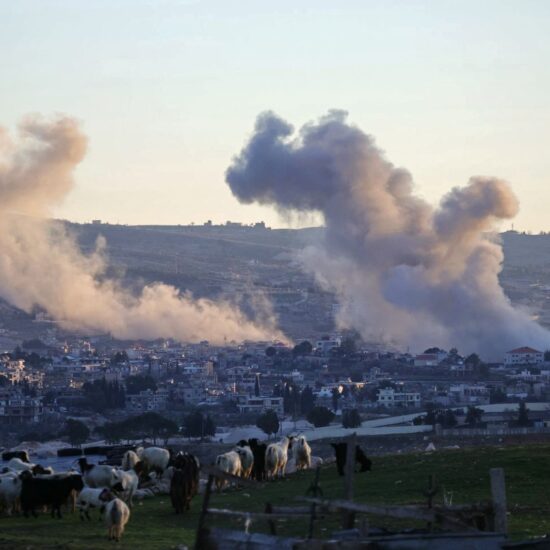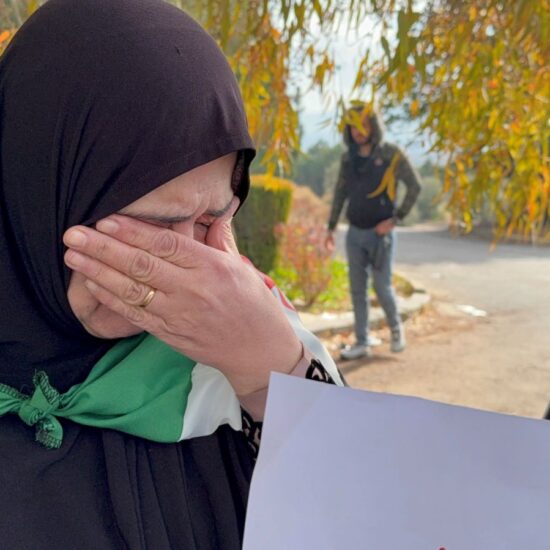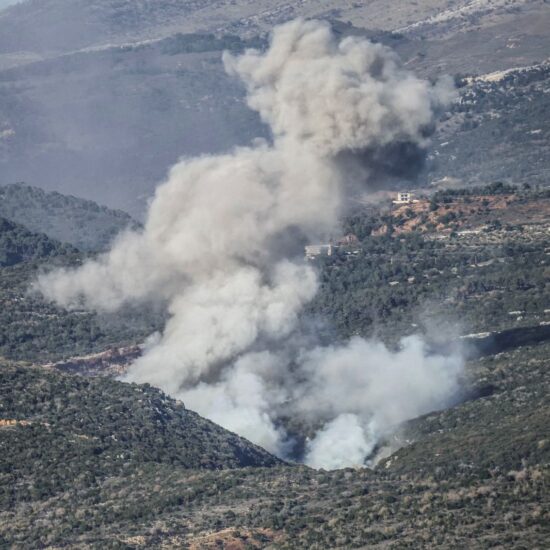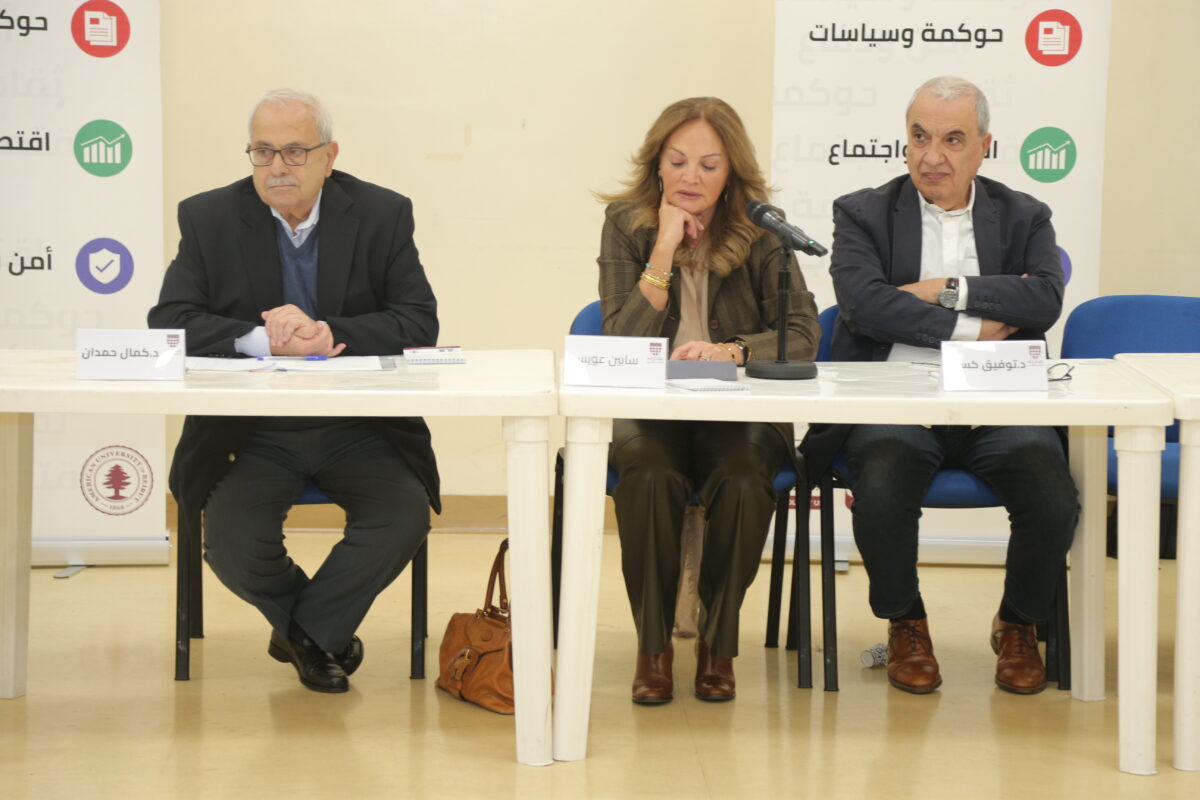
ROUNDTABLE 6: “Lebanon in its Second Century: A Forward Vision”
If good governance means that processes and institutions produce results that meet the needs of society while making the best use of resources at their disposal, then certainly, Lebanon’s public and private institutions demonstrated effectiveness and efficiency at the end of the first millennium beyond this narrative. Notably, Lebanon’s banks played a central role in driving the country into the financial catastrophe it has endured since 2019. Yet, they have managed to evade legal sanction, regulatory reform, and efforts to ensure they bear their fair share of the financial burden. In essence, the banking sector has departed from four key principles of governance: accountability, transparency, fairness, and responsibility.
Additionally, Lebanon’s ruling class, comprising intertwined political and business elites, has led the country into decline through a consociational democratic model stretching from politics to economics. This model aimed to maintain power-sharing arrangements, preserve democracy, and prevent violence and conflicts.
“Good governance in economics” was the theme of the sixth session of AUB’s seminar series, “Lebanon in its Second Century: A Forward Vision,” which began on November 1 and will run to March 2024 within the “governance and politics” cluster.
New Economic Model

Sabine Oueiss, journalist
The panel, moderated by An-Nahar journalist Sabine Oueiss and featuring economists Kamal Hamdan and Toufic Gaspard, shed light on ways to recover from the multitude of crises inherited from the first century of Lebanon’s institutions. Lebanon has ended its first millennium in one of the worst financial crises in modern history, and during this time, the country’s powerbrokers—the politicians, bankers, and sectarian leaders—have actively taken steps to speed the country’s descent into the abyss.
According to Oueiss, at the end of its first millennium, Lebanon’s governance model failed, its role collapsed, and the economic model that governed it for the last decades crumbled. In this context, the beginning of the second century doesn’t bode well amid intense competition and the progression of regional countries, where Lebanon used to serve as their link to the West.
“In the beginning of the second century there is a need to establish a viable foundation for decision-making, and consider realistic initiatives that can be implemented in the medium and future periods,” Oueiss said.
Since 2019, Lebanon’s national currency, the lira, has experienced a dramatic 98 percent devaluation. The value of personal savings and earnings has vanished, plunging over 80 percent of the population into multidimensional poverty. Inflation has soared, ranking among the highest globally, while public service delivery has crumbled.
To confront the ongoing challenges, notably the financial crisis since October 2019, Lebanon requires a restructured state supported by a new economic model. This model should be centered on social justice and transparency, capable of instigating structural changes in the institutional, political, economic, and social spheres, ensuring long-term economic growth.
The primary dual challenge faced in the second millennium is two-fold. Firstly, there is an apparent lack of accountability and scrutiny within a system driven by rewards and punishment. Secondly, Lebanon has concurrently lost its competitive position in the region due to various upheavals—political, economic, security, social, and cultural—alongside regional variables, crises, and conflicts.
The panel proposed strategies to review economic growth indicators and endeavor to revive Lebanon’s competitive role. Concurrently, the discussion delved into the vital aspects of responsibility, accountability, and understanding the causes of the financial and monetary collapse.
A Financial Sector in Limbo
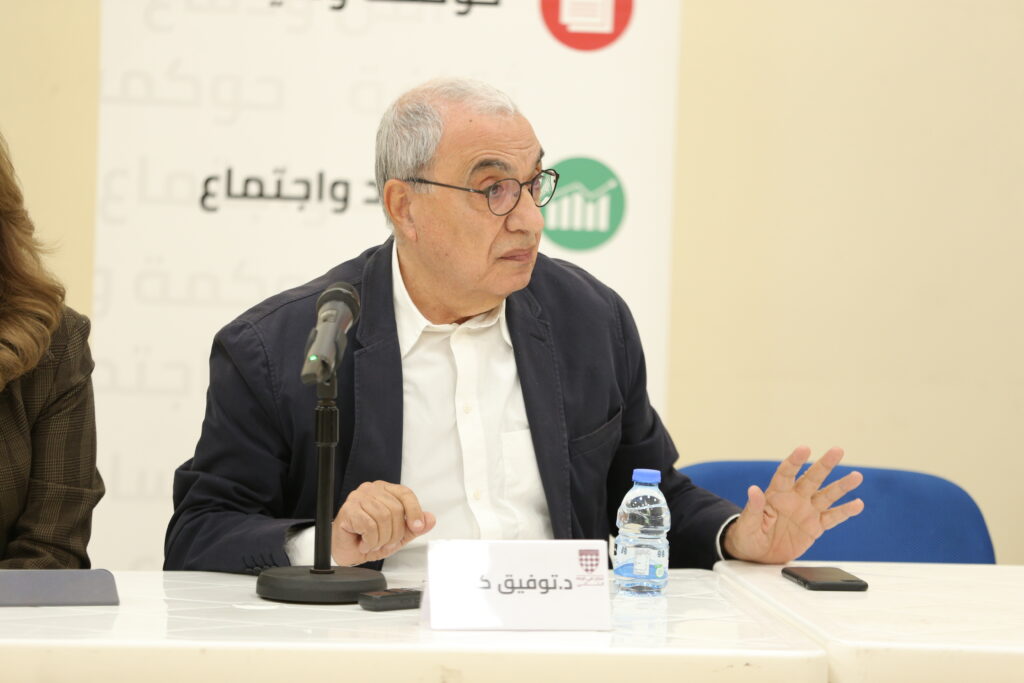
Toufic Gaspard, economist
The banking collapse is the largest in modern history, with no official or even scientific explanation for what happened, according to Gaspard. Lebanon’s banks played a central role in propelling the country into the financial catastrophe it has endured since 2019. To date, they have managed to avoid legal sanction, regulatory reform, and efforts to make them bear their fair share of the financial burden.
A false narrative, as Gaspard noted, is being promoted by politicians: that people deposited their money in banks, the banks made large deposits in the Central Bank of Lebanon for huge interest rates, and the government mismanaged those funds. Consequently, the argument goes, the government is not liable for returning these funds. Gaspard stated that all the Central Bank gave to the government was five billion dollars. It is unclear if Gaspard’s account includes treasury bills and Eurobonds subscribed to by banks during the last decade. He emphasized, “Therefore, assigning responsibility can only be achieved through investigation and identifying those accountable for this collapse.”
“’They’ have a name, a face, bank accounts, and registered financial interests — which means if ‘they’ have committed crimes then ‘they’ can be held liable,” Gaspard underscored. “Depositors should not be left alone when it comes to undue influence of financiers on politics.”
Regarding the Alvarez & Marsal audit report of the Central Bank, Gaspard views the concealment around it as “due to the fear of its contents.” He attributes 40% of the responsibility for the collapse to both the government and the Central Bank of Lebanon, 40% to the banks, and 20% to the depositors.
Concerning the issue of making banks, it is interesting to note that there is a substantial overlap between the country’s political class and those with financial interests and shareholders in the banking sector. According to various studies, a quarter of all board members of Lebanon’s largest banks meet the internationally recognized definition of a politically exposed person (PEP). This designation encompasses individuals who either currently hold or have previously held a prominent public function, as well as family members and close associates of such individuals.
“There is a need for Lebanon to withstand both regional and local shocks,” Kamal Hamdan, stated. “Positive adaptation to changing regional conditions: strategies for positively adapting to the evolving regional landscape, ensuring flexibility and responsiveness to changes should be the headline of the millennium to come,” he said.
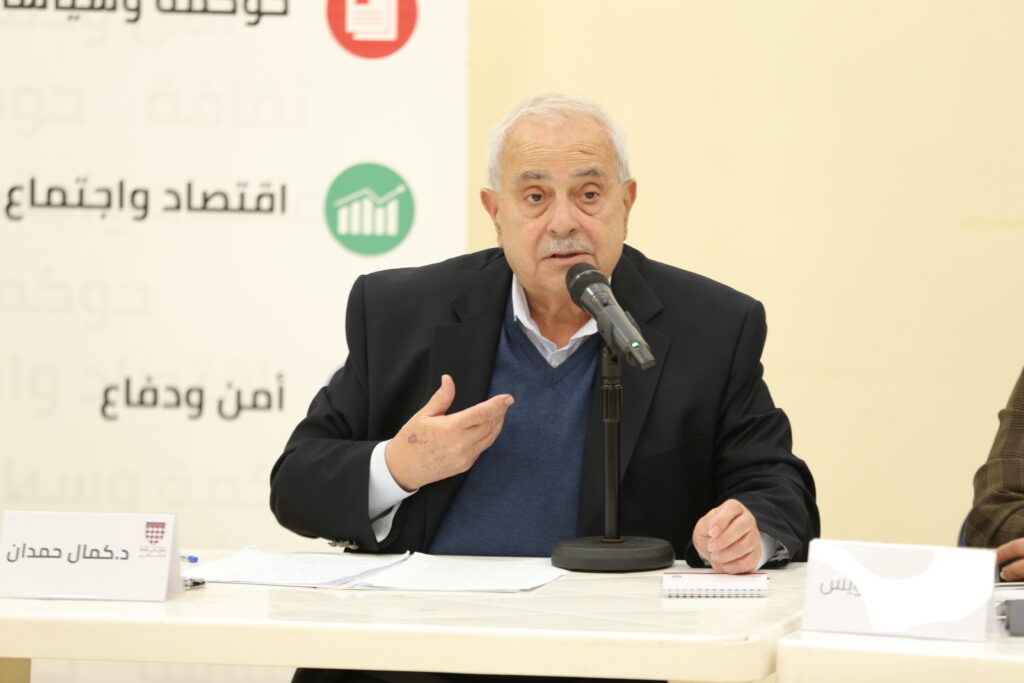
Kamal Hamdan, economist
He emphasized that the world is caught between conflicting vectors: a technology revolution that has changed the world, a world economy in crisis, and a global tendency towards fanaticism.
According to Hamdan, Lebanon’s competitive positioning has transformed into serving as a hospital, an airport, schools, and universities for the East.
The model for the next millennium is to address social issues and integrate them into growth trajectories, ensuring that economic development is inclusive and addresses societal concerns.
Building a resilient civil state with a national identity and sovereignty based on its decisions is a fundamental necessity for rebuilding the economy. These headlines will collectively address the need for adapting, fortifying, and reshaping economic strategies to navigate regional shifts and internal challenges while ensuring sustainable and inclusive growth.
“Moreover, any change cannot happen without reform laws that consider social issues, the reinsurance topic, the job market, and without changing this political class,” he said.
Where do we go from here?
The panel questioned why, in the more than three years since Lebanon entered economic collapse, all attempts by members of the judiciary to audit the banks and enforce transparency with their accounts have been delayed or derailed from higher up the chain of command. However, few answers have been proposed. Why, a year since Lebanon signed a US$3 billion bailout package with the International Monetary Fund, has the country not implemented the reforms necessary to release the money?
The answer sadly highlights that required reforms still lack an absent legal framework to redistribute losses from the financial crisis between the government, the banks, and depositors. This includes the removal of bank secrecy in line with international norms, restructuring of the financial sector, and the implementation of formal capital controls—all of which today would threaten the current impunity enjoyed by the banks and their management.
Overall, good corporate governance needs a model in the second millennium built upon transparent and data-driven policies, business practices, and internal processes that demonstrate the aligned incentives and interests of shareholders, directors, senior managers, clients and consumers, suppliers, government, and the wider community alike.
Is it too much wishful thinking?
Maan Barazy is an economist and founder and president of the National Council of Entrepreneurship and Innovation. He tweets @maanbarazy.
The views in this story reflect those of the author alone and do not necessarily reflect the beliefs of NOW.




